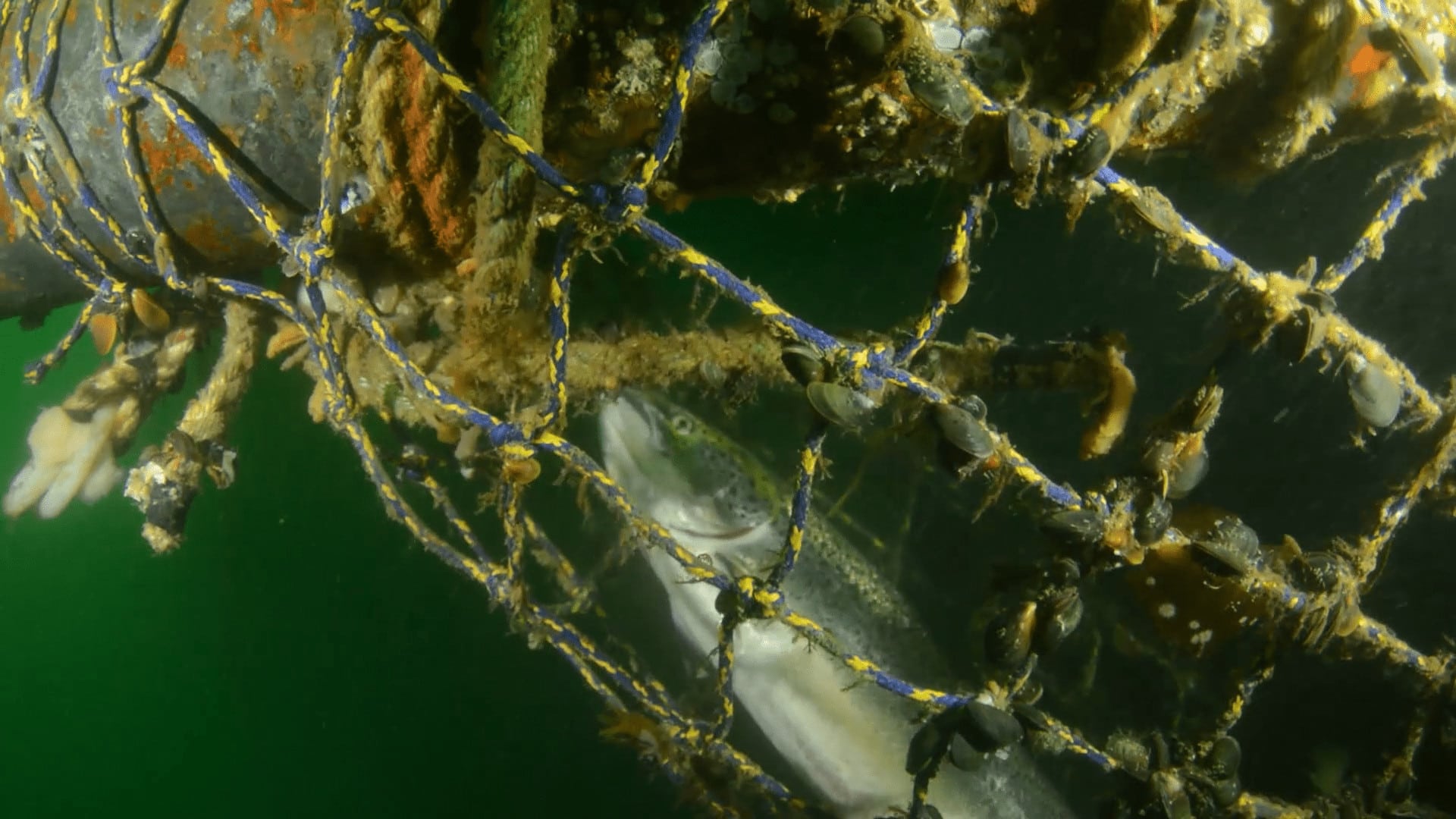
Cooke Aquaculture has moved one step closer to resuming industrial fish farming in Puget Sound. On October 1, Washington’s Department of Fish and Wildlife advanced a proposal to allow biologically-engineered steelhead trout to be planted in Cooke’s surviving net pens. After the catastrophic collapse of Cooke’s Cypress Island farm in August 2017, public outcry moved Governor Jay Inslee to announce a moratorium on new net pen leases, and the state legislature acted to phase out Atlantic salmon aquaculture by 2024. The 2017 collapse released over 300,000 Atlantic salmon into Puget Sound, requiring a massive response to prevent the non-native Atlantic salmon from harming endangered native salmon and steelhead trout.
Cooke Aquaculture was fined for negligence in maintenance of the facility and is currently being sued by Wild Fish Conservancy under the Clean Water Act. Documents released in the course of that lawsuit reveal that according to the net pen’s own manufacturers, the pens are not rated for the challenging conditions of Puget Sound and all remain at risk of catastrophic failure. Investigations by the state and Wild Fish Conservancy revealed failures of maintenance, inadequate emergency response plans, and evidence that the industry had imported and released Atlantic salmon infected with dangerous exotic diseases into Puget Sound.
“Given Washington State’s experience with Cooke Aquaculture’s negligent disregard for the wellbeing of our Sound and the state of the Northwest’s wild salmon and critically endangered killer whales, it is shocking that the state would even consider permitting the restocking of surviving net pens without a robust and comprehensive environmental review,” said Kurt Beardslee, executive director of Wild Fish Conservancy. “The 2017 collapse revealed that these pens are dramatically under-built for conditions in Puget Sound, and that Cooke’s recovery plan in the event of escapes was woefully inadequate. More escapes would directly threaten our wild salmon, steelhead trout, and endangered killer whales. Without a full EIS, the state cannot address the evidence from their investigations and WFC’s. Nor did they consider the state and federal governments’ own recent analysis of tsunami risks in the Sound, which could produce violent currents and waves of up to 20 feet high at net pen sites. Hospitals, bridges, waste storage sites, and commercial buildings have to be seismically safe, so net pens should be prepared for seismic risks.”
The Department of Fish and Wildlife has issued a mitigated determination of non-significance, beginning a 21-day comment period. This requires neither a full environmental assessment nor environmental impact statement under the State Environmental Policy Act. Such an assessment would have considered the risks of diseases, pollution, further escapes and collapses, and the potential harm to federally listed native steelhead.
“You can have aquaculture and wild salmon but that requires moving this industry to self-contained land-based facilities. Other companies are doing at around the world, it’s time to do it in Washington as well,” said Beardslee.
Wild Fish Conservancy is a conservation ecology organization dedicated to conservation, protection, and restoration of wild fish ecosystems in the Pacific Northwest. Headquartered in Duvall, WA, we work from California to Alaska.
###
For more information: wildfishconservancy.org
Kurt Beardslee, Wild Fish Conservancy Executive Director, 425-788-1167 / [email protected]
Join our mailing list to recieve important updates on our work, the latest wild fish news, & opportunities to take action to support wild fish.
This site is protected by reCAPTCHA and the Google Privacy Policy and Terms of Service apply.
Wild Fish Conservancy is recognized as a 501(c)3 non-profit by the IRS